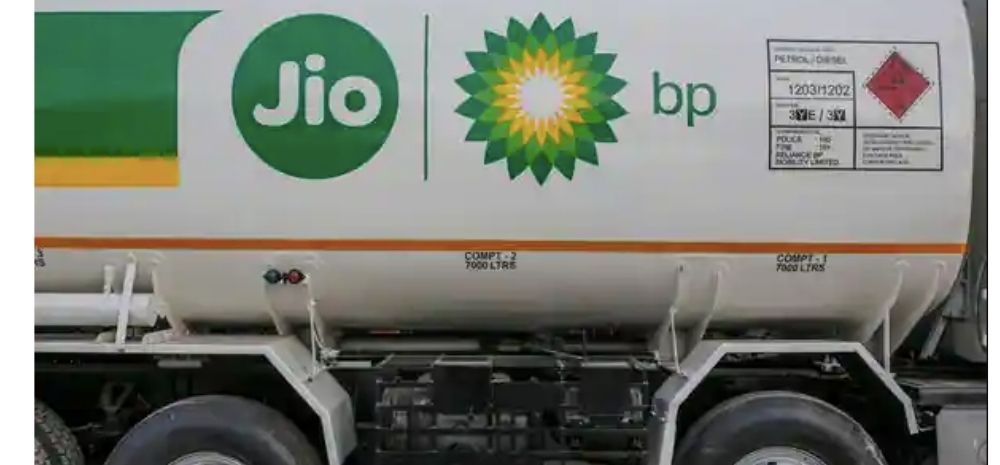Reliance, BP Join Forces To Launch India’s Biggest EV Charging Hubs: Can They Beat Indian Oil, Bharat Petroleum?

- In 2019, BP bought 49 percent stake in more than 1,400 petrol pumps and 31 aviation turbine fuel (ATF) stations owned by Reliance.
- Jio-BP Mobility Stations around the country will offer additivised fuel.
The joint venture of billionaire Mukesh Ambani’s Reliance Industries Ltd (RIL) and supermajor BP has opened one of the country’s largest electric vehicle (EV) charging hubs in Delhi, as the duo climb up the fuel retail network. They are offering multiple fuel choices which also includes EV charging infrastructure.
Reliance BP Mobility Limited operates under the brand name Jio-BP. The company has been working with multiple demand aggregators, original equipment manufacturers (OEMs) and technology partners with the mission of being the leading electric vehicle charging infrastructure player in India, RIL said in their third-quarter earnings announcement last week.
“Jio-BP has constructed and launched one of the country’s largest EV charging hubs in Dwarka, Delhi with BluSmart as its primary customer,” they have said. RBML also launched their first Jio-BP branded Mobility Station at Navde, Navi Mumbai in October last year. Since then, the company has been climbing up the network.
BP bought stake in Reliance petrol pumps
In 2019, BP bought 49 percent stake in more than 1,400 petrol pumps and 31 aviation turbine fuel (ATF) stations owned by Reliance for $1 billion. These existing Reliance petrol pumps have since been transferred to the joint venture and their plan is to scale them up to 5,500 by the year 2025. Reliance still holds the remaining 51 percent stake in Reliance BP Mobility Limited (RBML). RBML has now received the marketing authorisation for transportation fuels.
Petrol pumps with RBML have increased to 1,448, according to the latest information given by the petroleum ministry. RBML had 1,427 outlets at the end of September 2021. India’s auto fuel retailing has always been dominated by public sector oil companies which own the majority of petrol pumps in India. Nayara Energy is the largest private fuel retailer with 6,496 pumps. The company Shell has 310 petrol pumps.
Jio-BP has been looking to set up a network of electric vehicle charging stations and battery swap stations, at their petrol pumps, which the enterprise refers to as ‘Mobility Stations’, and other standalone locations which will be called Mobility Points.
The joint ventures’ aim
The joint venture aims to become a leading electric vehicle charging infrastructure player in India. State-owned Indian Oil Corporation (IOC) is the largest fuel retailer with 33,546 petrol pumps. Bharat Petroleum Corporation Ltd (BPCL) has 19,668 outlets and Hindustan Petroleum Corporation Ltd (HPCL) has 19,602 petrol pumps.
In a statement made by Reliance-BP in October last year, they have said that the existing network of over 1,400 petrol pumps will be rebranded as JIO-BP and will present a new range of customer value propositions over the next months. India’s market for fuels and mobility has been growing quite rapidly. It is expected to be the fastest-growing fuels market in the world over the next 20 years. Jio-BP’s Mobility Stations are designed to help meet the growing demand and will be located in places that increase customer convenience.
The joint venture wants to leverage Reliance’s extensive presence and deep experience in consumer businesses across India, with the hundreds of millions of customers of Jio and Reliance Retail, and also BP’s extensive global experience in high-quality differentiated fuels, lubricants, convenience and advanced low carbon mobility solutions.
Instead of regular fuels, Jio-BP Mobility Stations around the country will offer additivised fuel, at a reasonable cost. The fuel offering will also contain new internationally developed ‘ACTIVE’ technology that forms a protective layer over the critical engine parts which helps to keep the engines clean according to the statement.

Comments are closed, but trackbacks and pingbacks are open.